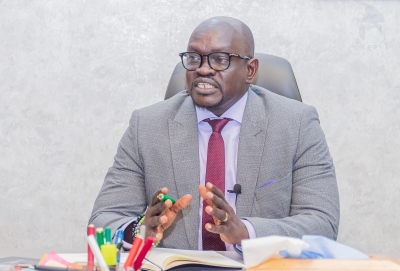South Sudan asks China CNPC to boost oil production
October 24, 2023 (JUBA) – South Sudan has asked China National Petroleum Corporation (CNPC) to boost crude oil production from two of its biggest fields, backtracking from an earlier plan to take over the Chinese entity’s role by 2027.
The decision follows a recent meeting in China between Nile Petroleum Corporation Limited (Nilepet) and CNPC, China’s major oil and gas corporation.
The high-level roundtable engagement in China also included other African countries, including Benin, Chad as well as other oil producing nations from Asia.
“What we are trying to tell them is, you have to be sure of 2027 because nobody is going to kick you out,” Nilepet’s Managing Director, Bernard Amour Makeny.
He added, “[And] I had to give them the confirmation and re-commitment of South Sudan in terms of safety of their staff, in terms of safety of their investment.”
CNPC has the biggest share in the Dar Petroleum Oil Operating Company consortium that operates in blocks 3 and 7 in Paloch oil fields in Upper Nile State. Other partners in the consortium include Petronas and Sinopec Corporation.
The two blocks, Makeny said, collectively produce 104,000 bpd from a peak of 260,000 bpd due to technical and operational challenges and the partners are hesitant to invest since they’re not sure if contracts will be renewed after expiry.
South Sudan has also held talks with Kenya and Ethiopia to export its crude, which would lessen its dependence on pipelines that run through war-plagued Sudan.
Makeny, however, said the conflict in Sudan has not yet affected oil production.
Already in existence and operational is a refinery in the oil-producing Unity State.
“It is functional, but the biggest challenge is no proper road network of which we can evacuate heavy fuel oil to Juba or to neighboring states,” stressed Makeny.
The landlocked nation recently signed a Memorandum of Understanding (MoU) with SPEC, an engineering and fabrication company in the United Arab Emirates (UAE) to set up a brand-new refinery in Block 5A which is a block that is capable of producing up to 70,000 to 80,000 barrels of oil per day.
“But because of the capping in Sudan, we are only allowed to export 6,000, 10,000, 16,000 maximum which is a waste,” said the Nilepet Managing Director.
South Sudan, which seceded from Sudan in 2011 after a civil, exports its oil output of 170,000 barrels per day via a pipeline through its northern neighbour.
Oil production is vital for South Sudan, accounting for 90% of government revenues.
(ST)

